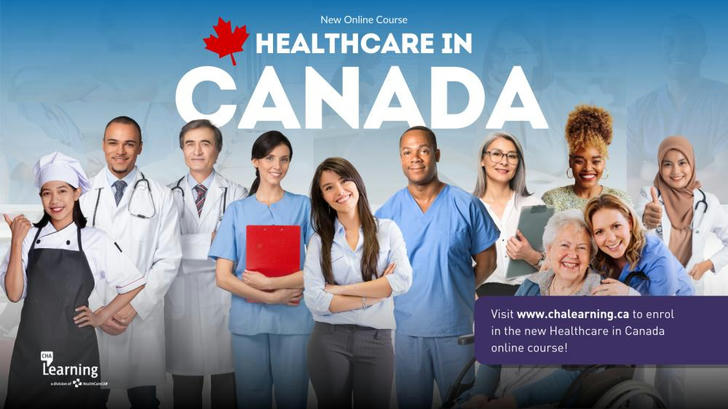Alberta HCA Training: real options, timetables, pay-to-learn paths and how to apply
For those aiming to become a Health Care Aide (HCA) in Alberta, clear paths range from college certificates (online/hybrid) to "earn while you learn" programs with AHS. This practical guide covers program types across the province, including details on duration, cost, funding, and how to apply.

Quick overview — the main routes
1.College certificate programs (community / polytechnic colleges) — structured HCA certificates with classroom, lab and clinical placements; common at Bow Valley College (Calgary), NorQuest College (Edmonton), Red Deer Polytechnic and others. These are the standard route to meet Alberta’s provincial HCA curriculum.
2.Employer-sponsored / AHS “earn as you learn” cohorts — training where employers (notably AHS in rural/remote sites) recruit and support trainees who get paid while completing required hours. Good if income during training is essential.
3.Short / workplace delivery or blended (online + in-person labs) — many colleges now offer online theory plus scheduled in-person lab days and clinical shifts to fit work schedules. This suits people who need flexibility.
What to expect on length, schedule and credentials
🔹Typical length: The standard classroom + clinical HCA certificate is commonly structured to finish in about 8 months full-time at several colleges (some evening/part-time options run ~12 months). Bow Valley and NorQuest outline 8-month pathways; evening/part-time variants extend the timeline.
🔹Delivery format: Programs are offered as in-person, hybrid (online theory + in-person labs/clinicals), or workplace-based cohorts where learning happens at or near an employer site. Confirm the mix before you enroll.
🔹Credential: Graduates earn the Government of Alberta HCA provincial curriculum certificate and prepare to work in hospitals, long-term care, home care and community settings. Check the college page for exact wording.
Costs and funding — realistic picture
🔸Tuition ranges: Published tuition varies by school and whether you are domestic or international. Example listing sites show full program fees for some colleges in the low-to-mid five-figure range for international students; domestic tuition is generally lower and varies by college — always check the program page for the current domestic rate. (See Bow Valley and NorQuest program pages for details and current tuition tables.)
🔸Funding & bursaries: The Alberta Health Care Aide Bursary program provides targeted support (up to **$9,000** for eligible students who commit to working as HCAs) — this can substantially reduce net cost for qualifying candidates. Also ask colleges about payment plans, and ask employers whether they offer tuition support or sponsorship.
🔸Earn-while-you-learn options: AHS and some rural employers offer paid training models where trainees are employees while completing training — this both offsets costs and provides income during the program. Check AHS program details for eligibility and locations.
Examples of current, real programs (what they promise)
🔹Bow Valley College (Calgary) — Health Care Aide Certificate: multiple delivery options, commonly cited 8-month full-time pathway; entry requirements and sequencing are posted on their program page. Confirm start dates and application deadlines on the Bow Valley site.
🔹NorQuest College (Edmonton) — Health Care Aide Certificate: one of Canada’s largest HCA programs; offers online with in-person labs and daytime/evening schedules (evening route may take ~12 months). NorQuest lists course sequencing, delivery and cost estimates.
🔹Red Deer Polytechnic & other regional colleges — they run HCA certificates with local clinical placements; check the local college for intake timing and seat availability.
Application checklist — what you need and steps to apply
1.Decide program & delivery: pick a college or employer cohort (Calgary? Edmonton? rural AHS?). Visit the program page and note start dates.
2.Check prerequisites: many programs ask for high-school English or an equivalent, an interview, and sometimes a basic admission assessment. Bow Valley, for example, recommends Grade 12 English equivalency.
3.Health & safety documents: be ready to show immunization records (e.g., TB test, MMR, Tdap, Hep B where required), CPR/BLS certification, and complete a criminal record/vulnerable-sector check before clinical placements. Colleges list specific requirements.
4.Apply online: use the college admissions portal (Bow Valley, NorQuest, RDPolytech) and upload ID/transcripts. For employer cohorts, apply via the employer or AHS careers page.
5.Ask about funding: once accepted, speak with financial aid or student services about the Alberta HCA bursary, employer sponsorships, and payment plans.
Tips to improve your odds and get hired faster
🔸Target employer-sponsored intakes if you need income during training — AHS “earn-as-you-learn” cohorts are explicitly designed for that. Alberta Health Services
🔸Get basic credentials now — CPR/BLS and a concise resume showing caring-work or physical labor experience help in interviews.
🔸Ask about placement support and job-guarantee language — some colleges maintain strong hiring links to local care homes and home-care providers.
Final word — practical and local
Be concrete: pick the city (Calgary, Edmonton or your home town), check the college page for the next intake, and line up your documents (ID, transcripts, immunizations, criminal checks). If money is the main barrier, apply for the Alberta HCA bursary and prioritize earn-while-you-learn cohorts.
